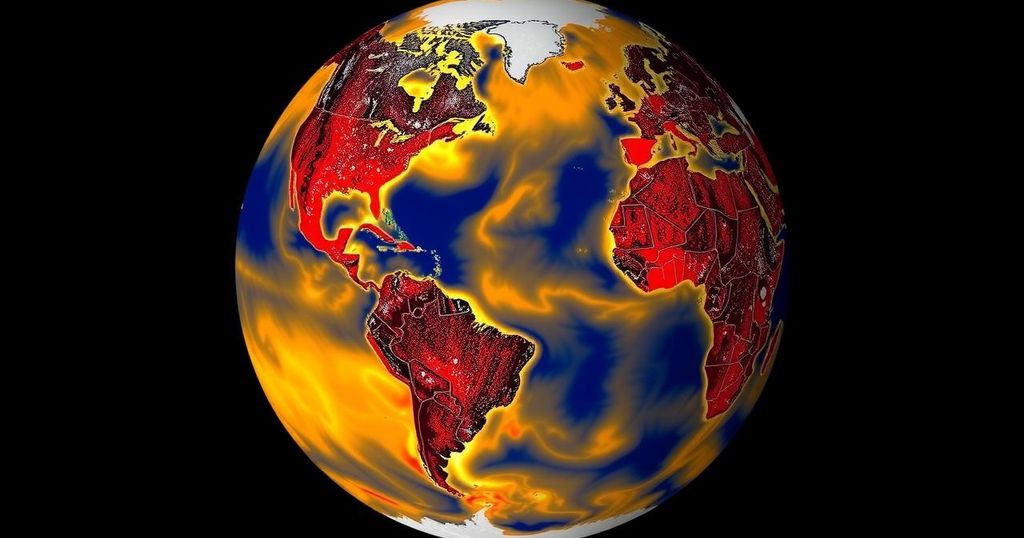For the third consecutive year, climate change projections remain stagnant, with Earth on track for a 2.7-degree Celsius increase by 2100. Current negotiations in Baku are focused on financial support for developing nations. A call for $1.3 trillion annually illustrates the urgent need for greater investment in climate adaptation and resilience amidst political uncertainties in major emitting countries like the U.S. and China.
For the third consecutive year, projections regarding global temperature increases remain stagnant, indicating that climate change mitigation efforts have not yielded improvement. An analysis presented before the 29th United Nations climate talks in Baku, Azerbaijan, suggests that recent developments, notably in China and the United States, may exacerbate the situation further. According to the Climate Action Tracker, the Earth is on track to experience a temperature rise of 2.7 degrees Celsius compared to pre-industrial levels, with emissions continuing to rise rather than decrease. The world has already warmed by 1.3 degrees Celsius, approaching the critical 1.5-degree threshold established in the Paris Agreement of 2015. Human activities, particularly fossil fuel combustion, have predominantly contributed to this atmospheric warming, which has resulted in increasingly severe weather events, including droughts and floods. The Climate Action Tracker’s forecasts have seen increments in projections, even under optimistic scenarios, with anticipated increases attributed in part to China’s emissions, which, despite showing signs of plateauing, remain higher than expected. Moreover, the uncertainty surrounding the U.S. political climate and potential rollbacks of environmental policies under a future administration could, as experts suggest, raise temperature projections by an additional fraction. Bill Hare, CEO of Climate Analytics, noted, “In the face of all of the climate disasters we’ve observed… the political system, politicians are not reacting.” Additionally, significant financial commitments for developing nations to adapt to climate change remain a topic of contention at the Baku conference, with a coalition of poorer nations demanding a staggering $1.3 trillion in annual climate finance. The current discussions revolve around not only the urgency to decarbonize energy systems but also the necessary financial support for vulnerable countries facing the repercussions of climate change. A recent report highlights that around $1 trillion annually is essential for developing nations to achieve substantial climate adaptation and resilience. The comprehensive financing needed for climate adaptation across all nations is projected to reach approximately $2.4 trillion annually, emphasizing the critical requirement for increased investment in light of the ongoing climate crisis.
The article discusses the alarming reality that global temperature projections concerning climate change remain unchanged for the third year in a row, despite ongoing climate negotiations at the United Nations conference in Baku. It provides context on the current trajectory of global temperatures, highlighting significant contributors to emissions, and the implications of political and economic developments on climate initiatives, particularly focusing on the roles of the United States and China. Furthermore, it discusses the financial demands of developing nations to combat climate change and adapt to its imminent impacts.
In conclusion, the ongoing stalemate in climate change projections underscores the inadequacies of current international efforts and the urgent need for substantial financial support for vulnerable nations. With emissions continuing to rise and critical temperature thresholds nearing, the necessity for effective and proactive climate policies has never been more pressing. Policymakers must prioritize global cooperation and investment to ensure a sustainable future.
Original Source: www.voanews.com







